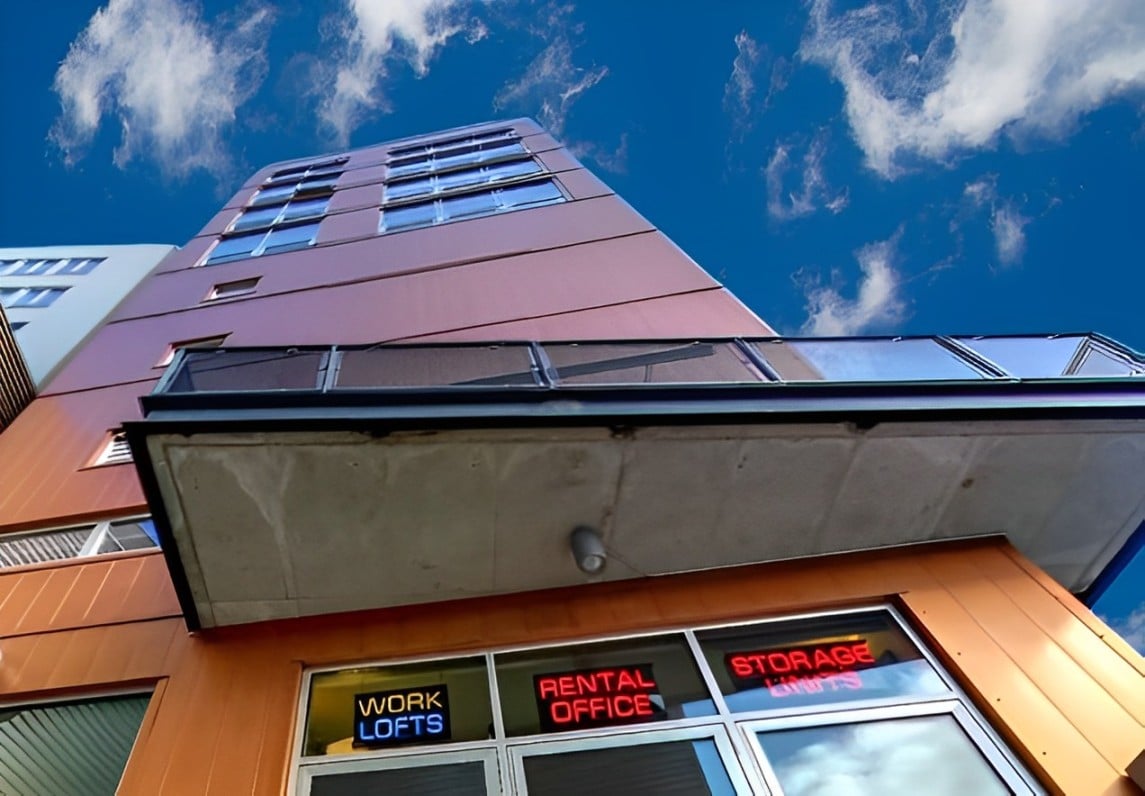Think Outside The Box!
Competing With On-Demand Storage Businesses
While the concept of on-demand storage is not a new one, as PODS (Portable On Demand Storage) was founded in 1998, over the past few years there have been numerous valet storage businesses popping up in large cities across the country. These on-demand storage businesses offer pick-up/delivery and inventory services as well as à la carte pricing that can be more cost effective than renting a storage unit, especially for customers with minimal items to store. And they have left some traditional, brick-and-mortar self-storage facilities wondering how they can better compete with the convenience that containerized storage solutions can provide to customers.
Adding a valet or on-demand storage option to your existing offerings may seem like a simple undertaking, however there are many items to consider before rushing into the business. While finding the space to store containers probably isn’t a problem, there are several logistical issues that must be taken into account.
For starters, will you provide containers? If so, what type and size of container will you offer? Containers come in countless styles, materials, and sizes. Moreover, transporting the containers could require special trucks or equipment. As an example, PODS uses a hydraulic lift system to move its containers that are constructed of plywood over steel frames. However, smaller containers, like the plastic bins used by the Denver-based valet storage company SquirrelBox, weigh less when full (up to 50 pounds), which makes them easier to maneuver.
Nevertheless, containers, trucks, and moving equipment require a substantial financial investment. There are plenty of legal and insurance aspects to address as well. According to Al Gardes, director of project management for Harahan, La.-based Elmwood Self Storage & Wine Cellar and Elmwood Records Center, which plans to open a valet storage service within the next six months, the issue of care, custody, and control is at the forefront with on-demand storage.
“Do not attempt to use the exact same self-storage contract [rental agreement],” says Gardes. “It offers no protection. In self-storage, you don’t have care, custody, or control of customers’ goods. There’s virtually zero legal responsibility.”
Of course, due to the nature of valet storage, the complete opposite is true. “There’s 100 percent control and legal responsibility,” he says, adding that storage operators who are planning to offer valet storage services should speak to their attorneys and insurance companies to obtain appropriate rental agreements and liability coverage(s).
Offer Options
Although valet storage services are a natural fit for Elmwood Self Storage, since the facility already offers wide-ranging record storage services and has all the necessary equipment (trucks, staff, management software, and a barcode system), the venture may not be feasible for every self-storage facility. Therefore, here are several other options that could prove more practical for competing with on-demand storage businesses:
- Become a franchise owner or dealer. Self-storage owners and operators can seek tried-and-true franchise or dealer options. “By investing in extra land and labor, traditional self-storage facilities can expand into the portable storage market by becoming a U-Haul U-Box dealer at uhaul.com/dealer,” says Brett Walker, U-Box operations manager for U-Haul International, Inc. “With its U-Box program, U-Haul offers customers the most varied and comprehensive delivery options with the widest coverage options in the industry. Customers can access their U-Box container at their local U-Haul facility, transport it themselves on a custom-made trailer, or have U-Haul deliver the U-Box container to their home.”
- Supply moving trucks. Moving trucks create an additional revenue stream for self-storage facilities and attract new customers. Facilities that allow new tenants to use their moving trucks for free are offering a valuable service that can persuade customers into renting units. The moving trucks themselves can also serve as a form of advertising for facilities. “A truck with nice graphics can be used as advertising,” says C.J. Steen, marketing director for On The Move, Inc., which can provide storage facilities with any type of vehicle/truck for moving purposes. “They become the facility’s no. 1 sign and rolling billboard.”
On The Move’s moving vehicles come equipped with hand trucks and furniture pads to assist with moves, but it may be beneficial for facilities to rent other moving equipment such as dollies, furniture straps, lifting gear, and the like. In addition, the facility’s retail area should of course be fully stocked with a wide variety of packing and moving supplies. - Form partnerships. Forming partnerships with local moving businesses is a great option for self-storage facilities that do not have the space or capital to provide moving trucks or moving services. Charlie Fritts, chief operating officer of Amherst, N.Y.-based Storage Investment Management, Inc. (SIMI), notes that most of the facilities managed by SIMI pay the rental fees for moving trucks when customers require them. He says that this has proven to be more practical for SIMI’s facilities as most customers need trucks during the busy weekends when scheduling the use of one or two facility-owned trucks can become cumbersome. Moreover, those facilities are not responsible for the costs associated with the maintenance and repairs of the moving trucks.
Self-storage facilities can also establish mutually-beneficial referral programs or partnerships with movers and companies that offer packing/unpacking services. As an example, Moishe’s Self Storage, with various locations in New York, offers free pick-up services for units up to a 5-by-10 when customers make a three-month commitment. Professionally trained movers pick up the items for the customer.
U-Haul also helps customers with hiring moving companies. “U-Haul even works with movinghelp.com, an online marketplace for hiring moving labor in your community, to assist customers with that need,” says Walker. - Offer extra amenities and services. Some on-demand storage businesses offer inventory services that enable customers to keep track of their stored goods. With these inventory systems, customers can photograph items, attach descriptions/details, and monitor their contents online. While an inventory system may not be a practical service for self-storage, there are plenty of other ways to help your tenants stay organized. For example, some facilities have shelves (for rent or purchase) that tenants can place inside their units.
Many valet and on-demand storage businesses also allow customers to schedule pick-ups and deliveries around the clock. Although the fees may be astronomical, there are customers who are willing to pay them for speedy service. Traditional self-storage facilities can compete by providing 24-hour gate access and online payment options. Self-storage kiosks are another sensible solution.
Climate-controlled features provide another competitive edge, since many of the warehouses used for valet storage are climate controlled. However, when it comes to amenities and services, it’s always best to ask your tenants what they would appreciate before making an investment. - Change your unit mix. Changing your unit mix may not be possible, but competing with the compactness of valet/on-demand storage can be an easy solution if your larger units aren’t in high demand. For instance, consider purchasing a row or cube of storage lockers to place inside one storage unit. This would be similar to facilities that offer safety deposit boxes or various sized storage lockers for wine, guns, and other valuables. While extra security measures may be required, the costs would be quickly recovered by having more than one tenant occupying that space.
Another option, which works well for a facility in Hawaii, is a cage-like metal shelving unit used to store kayaks, canoes, and surfboards. Something similar could be achieved on a smaller scale for bicycles, strollers, and other bulky items that apartment dwellers may not have room to store.
Service Counts
Above all, self-storage facilities can best compete with on-demand storage businesses by providing stellar customer service through friendly interactions in person, on the phone, and through email. Be sure to offer helpful storage tips to new tenants to make their stay an easy, enjoyable storage experience.
“Customer service is so important,” says Fritts. “Give guidance to customers.”
Erica Shatzer is the editor of Mini-Storage Messenger, Self-Storage Now!, and Self-Storage Canada.
More Content
Popular Posts
The self storage industry is in a precarious...
The REITs new pricing strategy – lowering...
With the approval of both companies’...
Recent Posts
Ramey Jackson is the CEO of Janus...
Imagine preparing to move and needing to...
Owning or managing a self-storage facility...
Helen Keller is quoted as saying, “Alone we...
It’s often been said that “opportunity is...
There’s a saying in Florida that there are...
The landscape of the self-storage industry...














